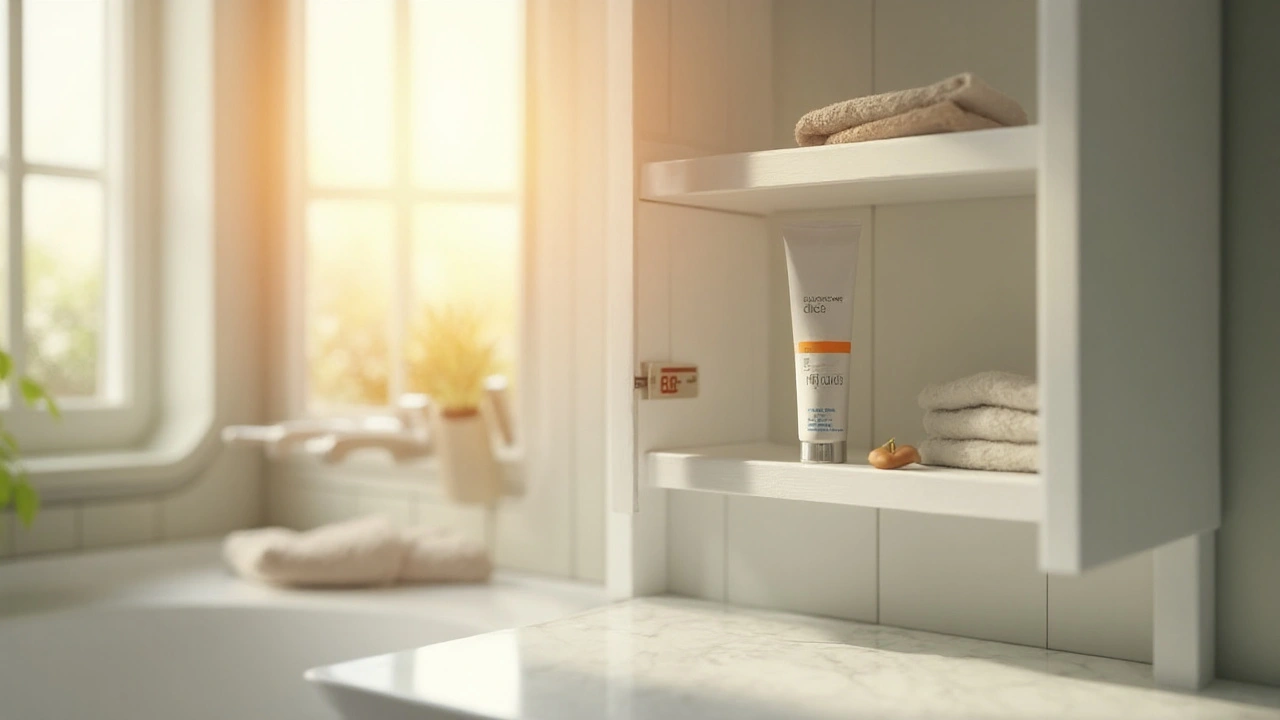Pharmacy Handling Guidelines: How to Safely Buy, Store, and Use Medications
Ever wondered if the pharmacy you’re using is trustworthy? Or how to keep your pills fresh and out of reach of kids? You’re not alone. Below are straight‑forward steps that protect your health while you shop, store, and handle medicines.
Check the Pharmacy’s Credibility
First thing – make sure the website is registered with your country’s drug regulator. In the UK look for a GPhC license, in the US a NABP Verified Internet Pharmacy Practice Sites seal, and in Canada a Health Canada approval. These seals are usually displayed at the bottom of the home page.
Next, verify that a real pharmacist is available for questions. A quick chat or email response shows they have staff who know the drugs. If the site only offers a chatbot that can’t answer basics, walk away.
Ask for a prescription when it’s required. Legit pharmacies will never sell prescription‑only meds without a valid script. If they claim “no prescription needed” for drugs like Lexapro, Cialis, or Ivermectin, that’s a red flag.
Compare prices, but don’t pick the cheapest option blindly. Extremely low prices often mean counterfeit pills. Check a few reputable pharmacies, note the range, and aim for something within that window.
Proper Storage and Disposal at Home
Once your meds arrive, inspect the packaging. Look for sealed bottles, correct batch numbers, and expiry dates that match the label. If anything looks tampered with, contact the pharmacy immediately.
Store drugs according to their label – most tablets belong in a cool, dry place away from sunlight. Refrigerated meds, like certain antibiotics, need a fridge set between 2‑8 °C. Keep medicines out of reach of children and pets; a locked cabinet works best.Don’t mix old pills with new ones. Use a pill organizer for daily doses, but keep the original bottle for reference. This helps you spot any missing or extra pills quickly.
When a medication expires or you have leftovers, don’t throw them in the trash. Many pharmacies offer a take‑back program, or you can call your local waste authority for guidelines. Proper disposal prevents accidental ingestion and protects the environment.
Finally, keep a simple log of what you’ve taken. Write the drug name, dose, and date in a notebook or an app. This makes doctor visits smoother and reduces the chance of double‑dosing.
Following these easy steps lets you shop online with confidence, store meds safely, and get rid of them responsibly. You don’t need a pharmacy degree – just a bit of common sense and a few checks. Stay safe, stay informed, and let your meds work for you, not the other way around.
Safe Storage & Handling Guide for Calcipotriene (Topical Psoriasis Treatment)
Learn how to store and handle Calcipotriene safely. Get clear tips on temperature, light, packaging, and pharmacy practices to keep the medication effective and reduce risks.
- 10
- Read More
